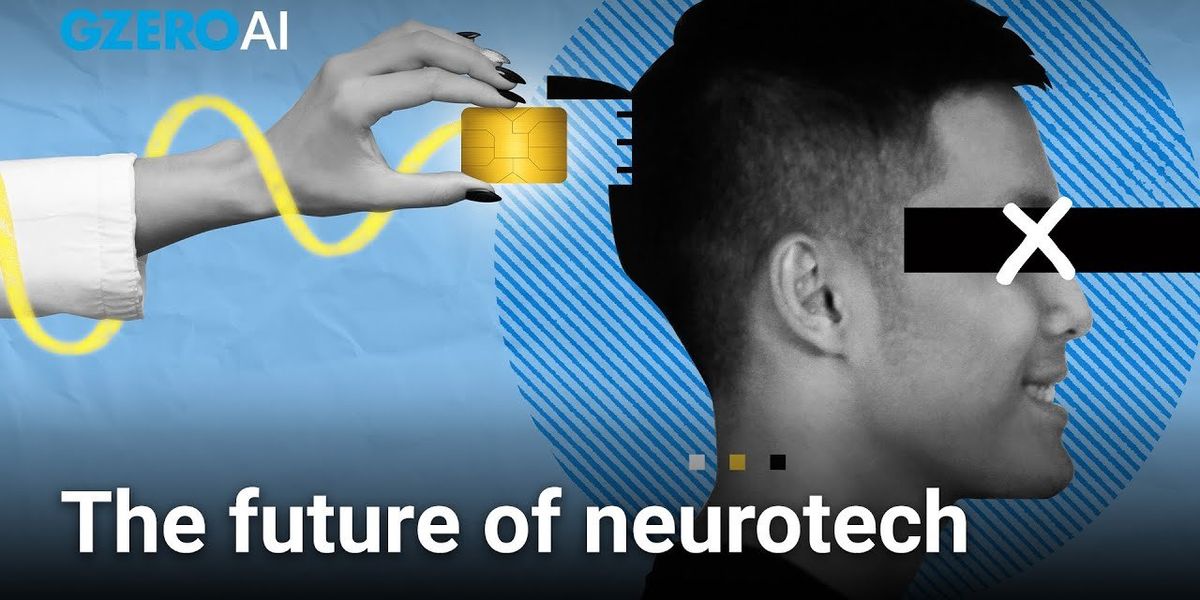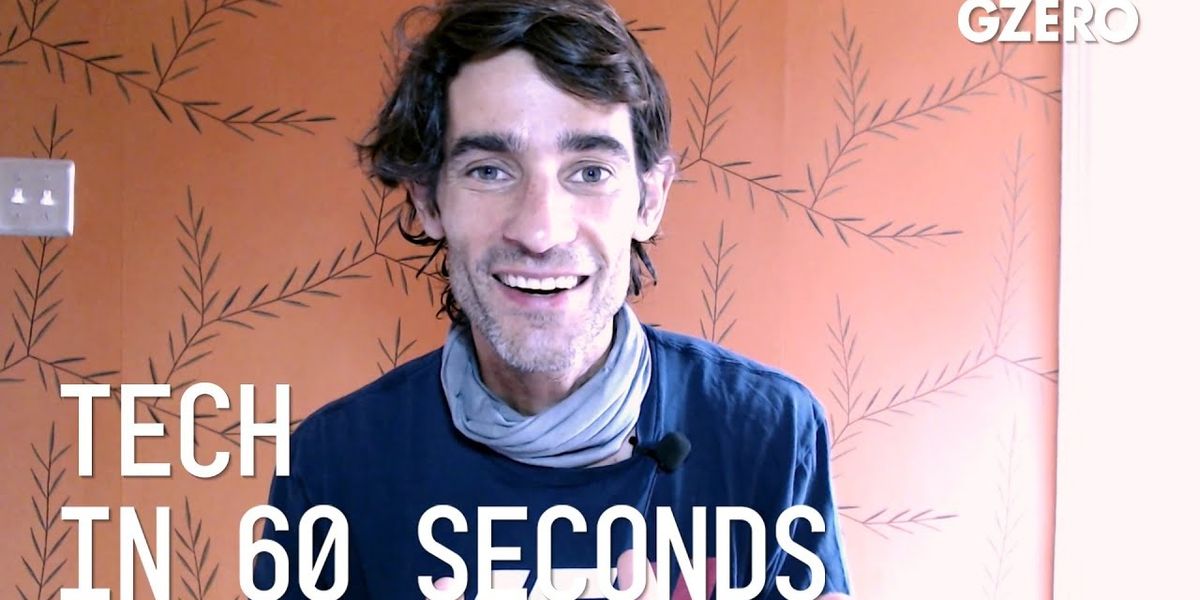Trending Now
We have updated our Privacy Policy and Terms of Use for Eurasia Group and its affiliates, including GZERO Media, to clarify the types of data we collect, how we collect it, how we use data and with whom we share data. By using our website you consent to our Terms and Conditions and Privacy Policy, including the transfer of your personal data to the United States from your country of residence, and our use of cookies described in our Cookie Policy.
{{ subpage.title }}
How neurotech could enhance our brains using AI
So earlier this year, Elon Musk's other company, Neuralink, successfully installed a brain implant in a 29-year-old quadriplegic man's brain named Noland Arbaugh. Last week, this story got a ton of attention when Neuralink announced that part of this implant had malfunctioned. But I think this news cycle and all the hyperbole around it misses the bigger picture.
Let me explain. So first, this Neuralink technology is really remarkable. It allowed Arbaugh to play chess with his mind, which he showed in his demo. But the potential beyond this really is fast. It's pretty early days for this technology, but there are signs that it might help us eliminate painful memories, repair lost bodily functions, and allow us to maybe even communicate with each other telepathically.
Second, this brain implant neurotechnology is part of a wider range of neuro tech. A second category isn't implanted in your body, but instead it sits on your body or near it, and picks up electric signals of your brain. These devices, which are being developed, by Meta and Apple, among many others, are more akin to health tracking devices, except they open up access to our thoughts.
Third point here is that this tech is an example of an adjacent technology to AI being turbocharged by recent advances in AI. One of the challenges of neurotech has been how to make sense of all of this data coming from our brains. And here is where AI becomes really powerful. We now increasingly have the power to give these data from our minds, meaning. The result is that the technology and corporations developing them have access to the most private data we have, data about what we think. Which of course brings up the bigger point here, which is we're on the cusp of getting access to our brain data and the potential and of abuse for this really is vast. And it's already happening.
Governments are already using neurotech to try and read their citizens minds, and corporations are working on ways to advertise to potential customers in their dreams. And finally, I think this shows very clearly that we need to be thinking about regulation and fast. Nita Farahany, who has recently written a book about the future of neurotechnology, called, “The Battle for Your Brain: Defending the right to Think Freely in the Age of Neurotechnology,” thinks we have a year to figure out the governance of this tech. A year, it's moving that fast. So many in the AI debate are debating and discussing the existential risks of AI, we might want to pay some attention to the technologies that are adjacent to AI and being empowered by it, as they likely present a far more immediate challenge.
I'm Taylor Owen, and thanks for watching.
Elon Musk's Neuralink startup aims to process thoughts; TikTok & Walmart
Nicholas Thompson, editor-in-chief of WIRED, helps us make sense of today's stories in technology:
What is going on with Elon Musk's startup, Neuralink?
He demonstrated on a Friday night, this small little sensor you put into your skull, or as he showed on TV, into the skull of a pig, it can read and write electrical signals into the brain. What will it likely be able to do? It may, for example, be able to process simple thoughts, allow people who have lost ability to move their arm, to move their arms again. The long-term promise, which Musk talked about, would allow you to download and rewind your memories, highly unlikely and highly speculative.
Why does Walmart want to buy TikTok?
Well, TikTok will generate tons of revenue. It's a booming platform and there are lots of possible ways it could integrate with Walmart. E-commerce, advertising, branding. I don't know if that's a great idea for TikTok but it does make sense for Walmart.

